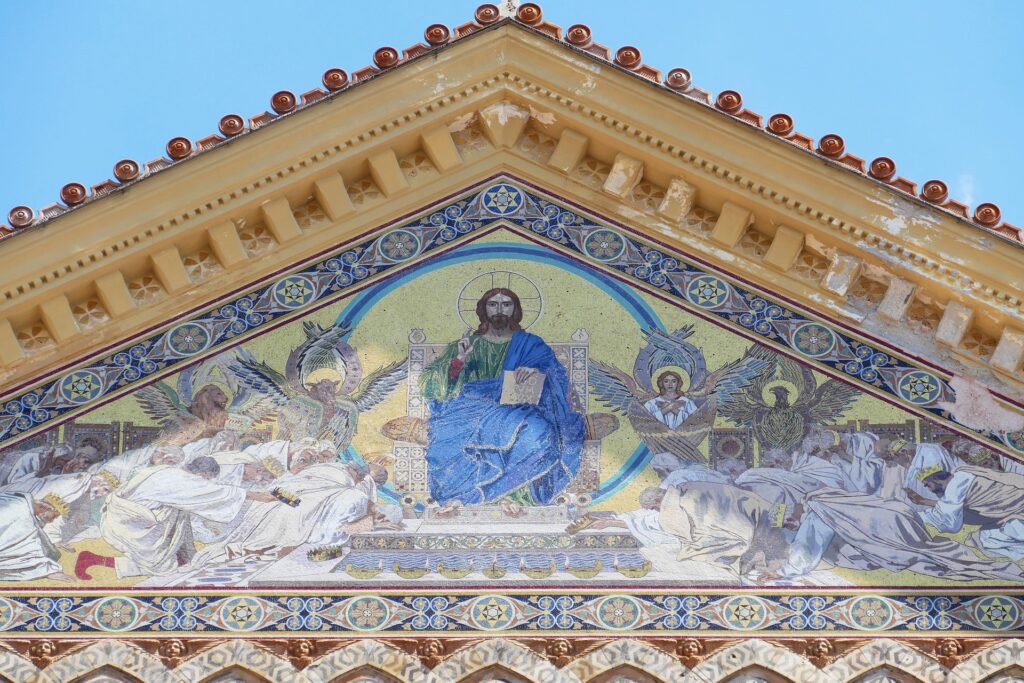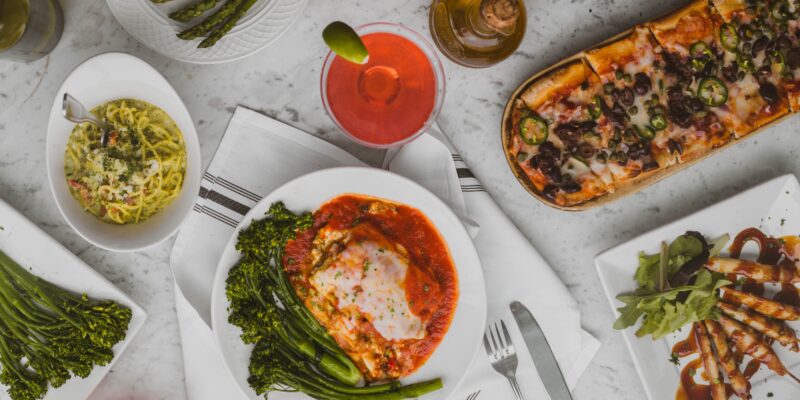Many Catholic families say grace before and after meals, and they do this for good reason: the prayers gives praise and thanks to God, the prayer blesses the food with a seal of protection, and reciting the prayers before and after meals is an act of faith pleasing to God.
Grace Before Meals Catholic Prayer
When we say grace before meals, it is an acceptable and pleasing way of giving thanks to God in prayer for the gift of food He has given us. All good things come from God.
+ Bless us, O Lord! and these Thy Gifts, which we are about to receive from Thy bounty, through Christ Our Lord. Amen.
Grace Before Meals Catholic Prayer PDF
Grace After Meals Catholic Prayer
It is also beneficial to say a prayer of thanks to God for the food He has nourished us with after our meals. A prayer of thanksgiving after meals dates all the way back to the time of Moses. And like the healed leper who came back to give thanks to Jesus for his restored health, we return to the Lord our God, giving thanks for His blessings.
Grace After Meals Catholic Prayer PDF
+ We give Thee Thanks for all Thy benefits. O Almighty God, who lives and reigns forever; and may the souls of the faithful departed through the mercy of God, rest in peace. Amen.
Frequently Asked Questions About Grace
Here are 3 common questions and answers about grace for better understanding.
What Does the Word Grace Mean?
The word grace (Latin gratia ; Greek charis) means a gratuitous and unmerited gift we receive from God without doing anything to receive it on our own. Grace is of a supernatural origin in that it flows freely from God out of His goodness and compassion for us and also for the sake of our eternal salvation.
“The Holy Ghost dwells in the Church as the source of its life, and sanctifies souls through the gift of grace.” Source: My Catholic Faith
What is the Grace Before Meals Prayer?
The Catholic grace before meals prayer is an invocation prayer. In thanksgiving, we call upon God and give Him recognition and praise for all of the gifts He freely bestows on us out of His goodness and love for us. The prayer also acknowledges our dependence on God for everything, including life essentials such as food and water.
“Therefore, let us not be ungrateful for God’s kindness. For if He were to reward us according to our works, we would cease to be.” – St. Ignatius
Where Did the Grace Before Meals Prayer Originate?
The prayer is known to have its origins from the Gelasian Sacramentary, which is a liturgical book that dates back to the 8th century and contains various prayers and rites such as the blessing of the Easter font, the dedication of churches, and the liturgy for the priest’s part in the celebration of the Eucharist at holy sacrifice of the Mass.
Blessing of Meals in the Old Testament
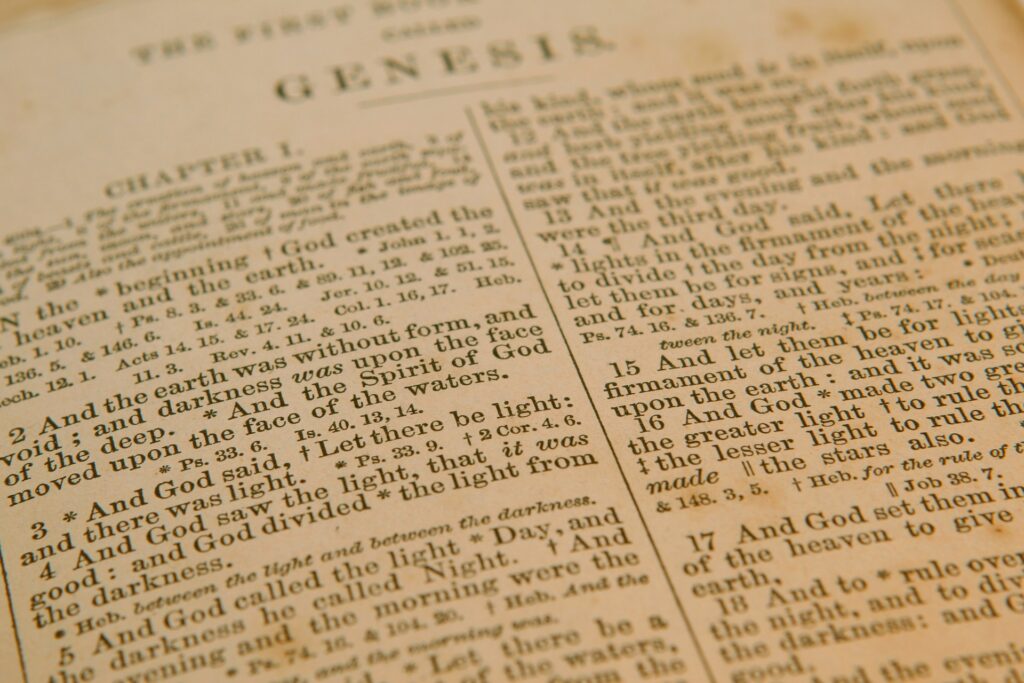
Moses Mandates a Blessing After Meals
Moses, under the authority of God, commanded the faithful of Israel to give thanks to God for all gifts He has given them for being righteous and devout. This included giving a prayer of thanks to God for the meals they have eaten and enjoyed.
When you have eaten and are satisfied, you must bless the LORD, your God, for the good land He has given you. Deuteronomy 8:10
Blessing of Meals in the New Testament
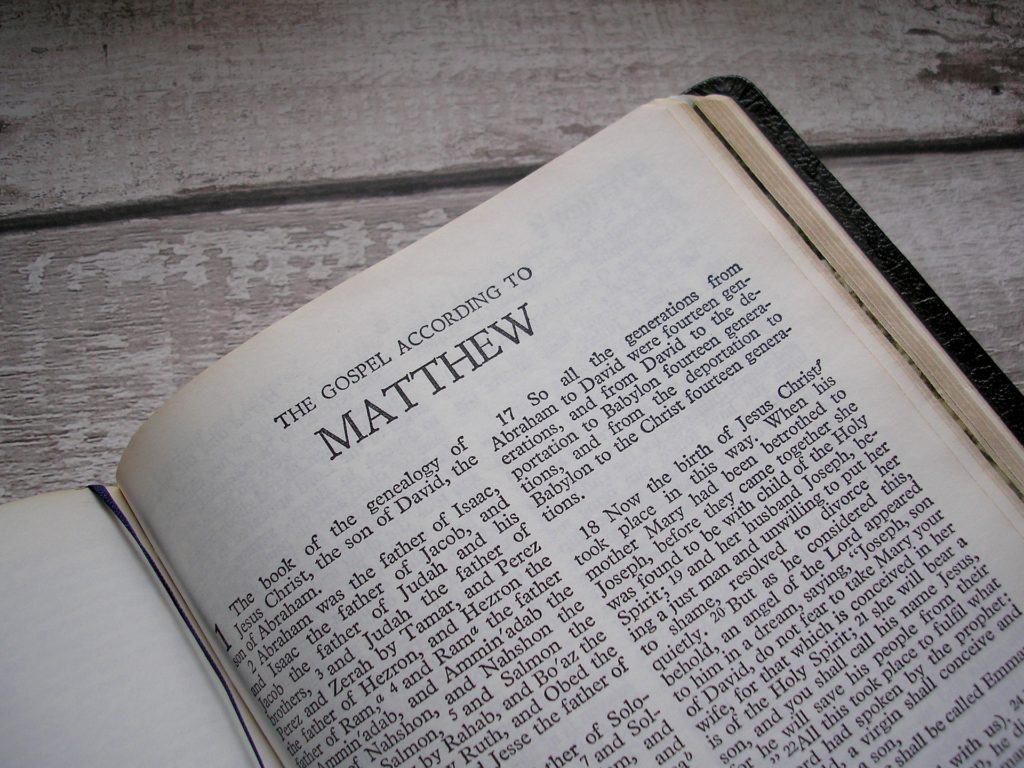
Overview of Jesus Blessing Meals in the Gospels
| Reference | Description | Verse |
|---|---|---|
| Feeding the Crowds | Jesus said the blessing, broke the loaves… | Mt 14:19 |
| Feeding the Crowds | Looking up to heaven, He said the blessing… | Mk 6:41 |
| Feeding the Crowds | Jesus said the blessing over the loaves…. | Lk 9:16 |
| Feeding the Crowds | Jesus took the loaves, gave thanks… | Jn 6:11 |
| The Last Supper | Jesus took bread, said the blessing… | Mt 26:26 |
| The Last Supper | Jesus took bread, said the blessing… | Mk 14:22 |
| The Last Supper | Jesus took the bread, said the blessing… | Lk 22:19 |
| Table at Emmaus | Jesus took bread, said the blessing, broke it… | Lk 24:30 |
Jesus Blesses Five Loaves and Two Fish
Jesus said a blessing over the loaves of bread in all four gospels (Matthew, Mark, Luke, and John). This blessing is symbolic of the blessing of the Eucharist, the body of Christ Catholics receive at Mass when the bread is consecrated by the priest at the altar.
Jesus ordered the crowds to sit down on the grass. Taking the five loaves and the two fish, and looking up to heaven, He said the blessing, broke the loaves, and gave them to the disciples, who in turn gave them to the crowds. Matthew 14:19
This verse of Jesus blessing the loaves reflects the practice of giving thanks to God before meals. Saying grace before meals is a good way to express our gratitude to God for the blessings He has given us in life, including the food we are about to receive.
The grace before meals prayer also helps us to reflect on the holy sacrament of the Eucharist, which is the source and summit of our Catholic faith.
“Christ blessed and broke the loaves: From this let Christians learn to give thanks at their meals, begging of God that His gifts may be sanctified for their use.” Source: George Leo Haydock
God Sanctifies Our Food With a Blessing Before Meals
It says in the book of Genesis that when God created things (plants, animals, etc.) He saw that they were good. When we invoke God’s name in prayer, saying grace before meals, we seal the food we eat with God’s blessing and protection upon it.
For everything created by God is good, and nothing is to be rejected when received with thanksgiving, for it is made holy by the invocation of God in prayer. 1 Timothy 4:4-5
“No creature of God is unclean…if it had become so, you have a remedy, seal it, give thanks, and glorify God, and all the uncleanness passes away.” – St. John Chrysostom
Don’t Give Up: Be Thankful to God for All of Your Blessings
In these difficult times we live in, we should say grace before and after meals, giving thanks to God, whether it is at a family style dinner or with just a sandwich in solitude.
In all circumstances give thanks, for this is the will of God for you in Christ Jesus. 1 Thessalonians 5:18
Grace Before Meals in the Catechism
Blessed be the God and Father of our Lord Jesus Christ, who has blessed us in Christ with every spiritual blessing in the heavens. Ephesians 1:3
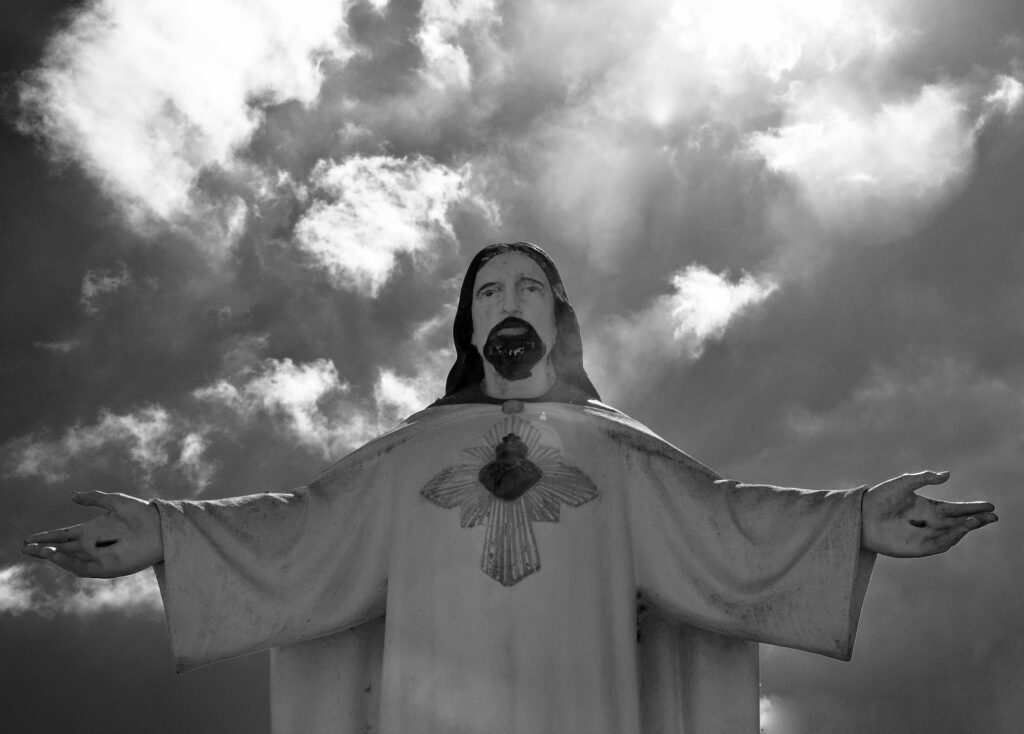
“The Catechism contains the essential and fundamental content of the Catholic faith in a complete and summary way. It presents what Catholics throughout the world believe in common.” Source: USCCB
Overview of Grace Before Meals and After Meals in the Catechism of the Catholic Church
| Reference | Description | Catechism # |
|---|---|---|
| Sacramentals | Sacramental blessings (meals etc.)/ praises God… | 1671 |
| Daily Prayers | Church proposes…a rhythm of praying (meals)… | 2698 |
| Daily Bread | Food / is a gift from God ( grace at meals)… | 2834 |
Sacramentals
According to the catechism, every baptized Catholic is called by God to be a blessing in this life for others and to bless. Thus, when we say grace before and after meals, we make the sign of the cross, we invoke the name of Jesus, and we praise God for the good things He has given us, including our meals.
Daily Prayers
The Church has given us certain prayers to be included in our daily life: morning prayers, evening prayers, grace before and after meals, the praying of the Angelus, etc. These prayers help us to establish a holy rhythm in our day, and they help to keep us living in right order with the Most High God.
Daily Bread
The catechism states that the food we eat and enjoy is a gift from God. The work we do and resources we use to acquire the food are also gifts from God. It is good to give thanks to God for our daily bread just as Jesus did in the Gospel.
Saying Grace in Spiritual Warfare
…Take some food; it will help you survive. Not a hair of the head of anyone of you will be lost.” When Paul said this, he took bread, gave thanks to God in front of them all, broke it, and began to eat. They were all encouraged and took some food themselves. Acts 27:34-36
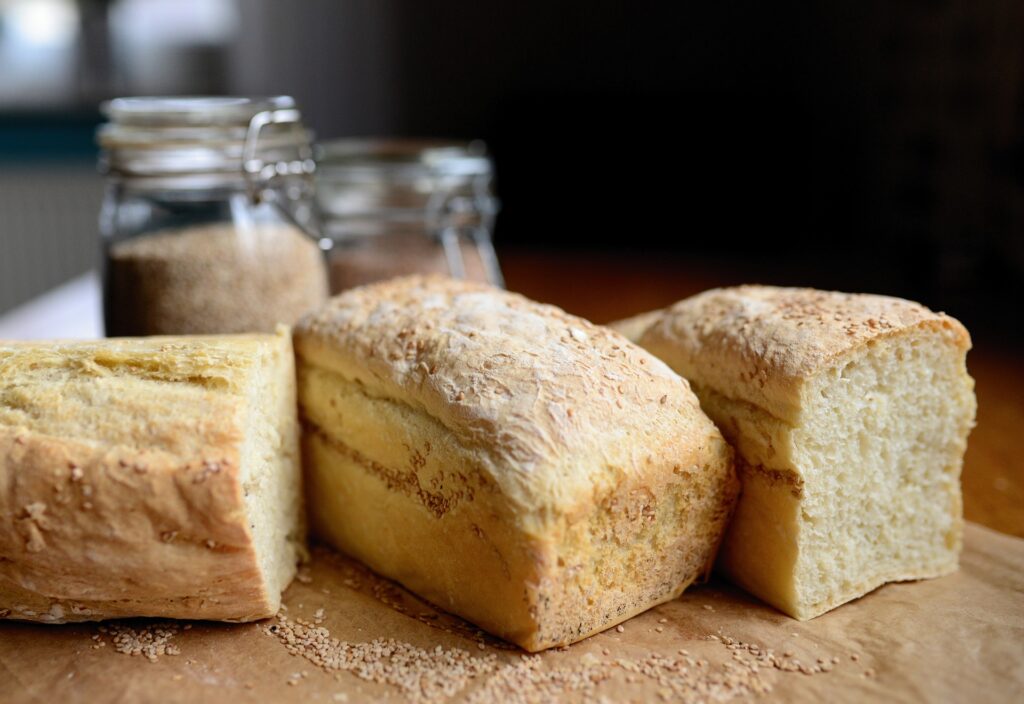
Baptismal Spiritual Authority
The Catholic faithful uses baptismal authority to say grace before meals, invoking the name of Jesus Christ. Not only do we do this to give thanks to God, but the prayer also helps to seal our meals with God’s blessing of protection before we eat our food.
The Father’s Spiritual Authority
I asked Catholic spiritual warfare expert, Dr. Dan Schneider, about the role of the father of the family in regards to saying grace. Please see his commentary below:
“Like St. Paul, who said I bend the knee father through them all blessings flow. So the blessing begins with the head of household. As spiritual head, the father should lead all family public prayer, including grace.” – Dr. Dan Schneider
Dr. Schneider is referencing St. Paul’s verse from Ephesians:
For this reason I kneel before the Father, from whom every family in heaven and on earth is named. Ephesians 3:14-15
Blessing of Meals Provides Spiritual Protection
The blessings and prayers before meals can contribute to spiritual protection of the family. Blessing the meal can be seen as invoking God’s protection over the food and for those who partake of it, especially if the father leads the family in prayer.
The Lord gives bread to all flesh, for his mercy endures forever. Psalms 136:25
Giving Thanks After Meals Honors God
While there is no specific verse for the blessing of meals in the Old Testament, Moses gave a command to the Israelites to give thanks to God after their meals (Dt 8:10).
Giving thanks to God after meals should help to provide Catholic families a greater degree of God’s blessing and protection, both in this life and at the judgment.
Recall the words of Christ in St. Luke’s Gospel when He cleansed the ten lepers.
Has none but this foreigner returned to give thanks to God?” Then Jesus said to him, “Stand up and go; your faith has saved you. Luke 17:18-19
Concluding Thoughts
Grace before meals and after meals are two beloved Catholic prayers we can pray to the Lord every day throughout our lives. In faith, we receive His grace, and in devout faithfulness to God, we pray also that we may be worthy of eternal life.
“…And may the souls of the faithful departed through the mercy of God rest in peace. Amen.”
